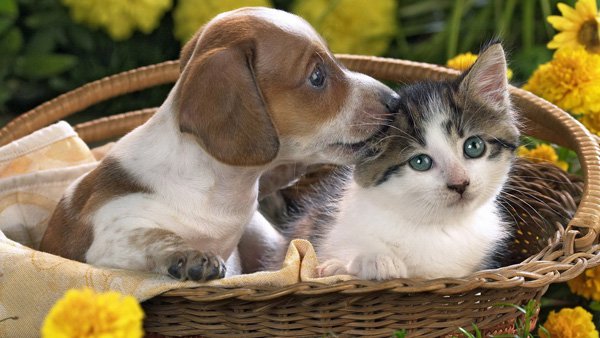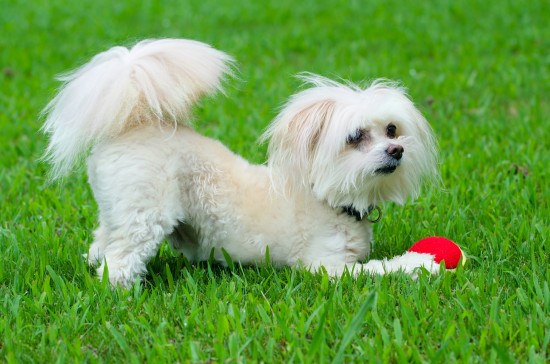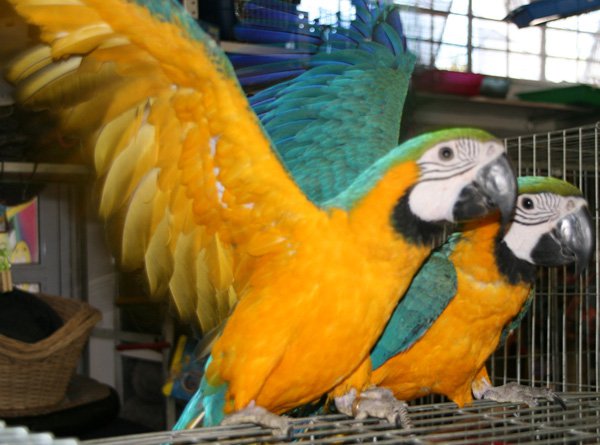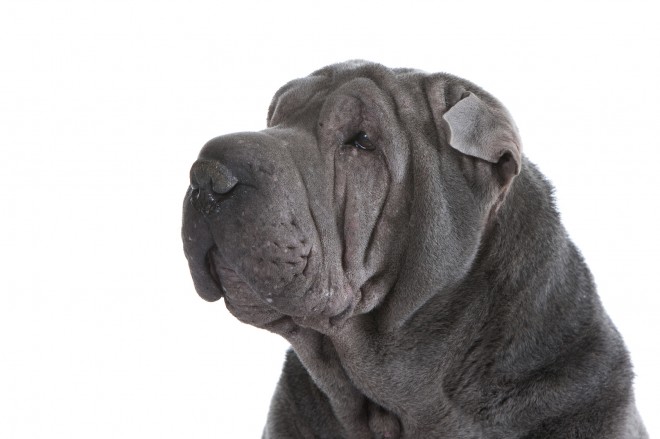
Food allergy is an abnormal or a hypersensitive reaction to a food ingredient which is usually a protein. 10-20% of allergies in cats are caused by food.
CAUSES
Beef, dairy products and fish, especially tuna and mackerel are responsible for almost 90 percent of food allergies in cats. These products cause a skin reaction as opposed to diarrhea.
Note: Food preservatives including Benzoic Acid and Propylene Glycol (read labels) are toxic to cats.
Milk causes diarrhea as opposed to a skin reaction. This is called Lactose Intolerance.
SYMPTOM BOX
* Severe itching all over the body
* Itching with small scabs located primarily on the head, neck and ears.
WHAT YOU CAN DO
* 1/3 of cats with food allergies also have concurrent flea allergies, therefore scab like lesions and itching are focused on the head, neck and ears.
* Siamese and/or Siamese cross bred cats less than 2 years old may be at increased risk of food allergies.
* A relatively new dietary option for food allergy therapy involves using Hydrolyzed Proteins. These are conventional proteins broken down into such a small size they are unable to cause an allergic reaction. Hypoallergenic diets containing Hydrolyzed Protein are available commercially.
* Purina's Prescription Diet Division offers CNM HA (the HA stands for Hypoallergenic)
* Exclude is a diet made by DVM Dermatologies. It comes in a powder form and is mixed with water to the desired consistency.
* If itching and skin lesions resolve then reappear within 2 weeks of feeding the cat his former food, a food allergy diagnosis may also be confirmed.
The cat's nutritional history should include a complete list of commercial and homemade foods as well as snacks, treats, toys, medications and human foods.
The only way to find out the true cause of a food allergy is to use an elimination diet. A single source of protein is used for 12 weeks to see if the cat's condition improves.
Then new ingredients are added back into the diet one at a time, every five to seven days, until the problem recurs. Using this method, and noting what was added when, if there is a reaction you will know which food ingredient is responsible for the problem.
* For the elimination diet to work, start by using a protein source the cat has not been previously exposed to.
* Ingredients recommended for homemade Feline diets that work best initially for cats include one protein source or a combination of one protein and one carbohydrate source.
For example:
* Lamb baby food
* Lamb (mutton) and brown rice
* Venison and potato
* Use distilled water or boil tap water and refrigerate -- this helps avoid chlorine, which can be a factor.
* If diarrhea is present, avoid foods with wheat barley, rye and avoid milk.
* Food allergies tend to be life long but once you identify the offending allergen, you can find a variety of suitable diets that don't include the problem foods but still provide a balanced diet.
Several "allergen" free diets are available. Keep a daily diary during the elimination phase to keep track of the type of food eaten and any signs that occurred as a result.
If a food allergy is the only cause of the problem, itching should stop and signs should improve 100%. Up to 1/3 of cats with food allergies also have other allergies and therefore, may only respond partially to an elimination diet. Flea Allergy Dermatitis and Inhalant Allergies are the two most common causes and should be ruled out through other testing.
COMPLEMENTARY TREATMENTS
HOMEOPATHIC REMEDIES
Vitamin C in high does acts as an antihistamine and may help with itching, if present. Ascorbate powder is a source of Vitamin C -- 100 milligrams 3 times daily is an average daily dose. Check with your vet to be sure.
 How to Choose a Dog Daycare Facility
How to Choose a Dog Daycare Facility
Choosing
How to Choose a Dog Daycare Facility
How to Choose a Dog Daycare Facility
Choosing
 Goat Secure fencing -- the Safe Pound for Goats
Goat Secure fencing -- the Safe Pound for Goats
Goat Secure fencing -- the Safe Pound for Goats
Goat Secure fencing -- the Safe Pound for Goats
 The Maltipoo - A Cute Hybrid Dog !
The Maltipoo - A
The Maltipoo - A Cute Hybrid Dog !
The Maltipoo - A
 The Different Benefit of Portable Chicken Coops for your Feathered Pet
The Different Benefit of Portable Chicken Coops for your F
The Different Benefit of Portable Chicken Coops for your Feathered Pet
The Different Benefit of Portable Chicken Coops for your F
 Atopic Dermatitis In Dogs
Atopic Dermatitis
Atopic Dermatitis In Dogs
Atopic Dermatitis
Copyright © 2005-2016 Pet Information All Rights Reserved
Contact us: www162date@outlook.com